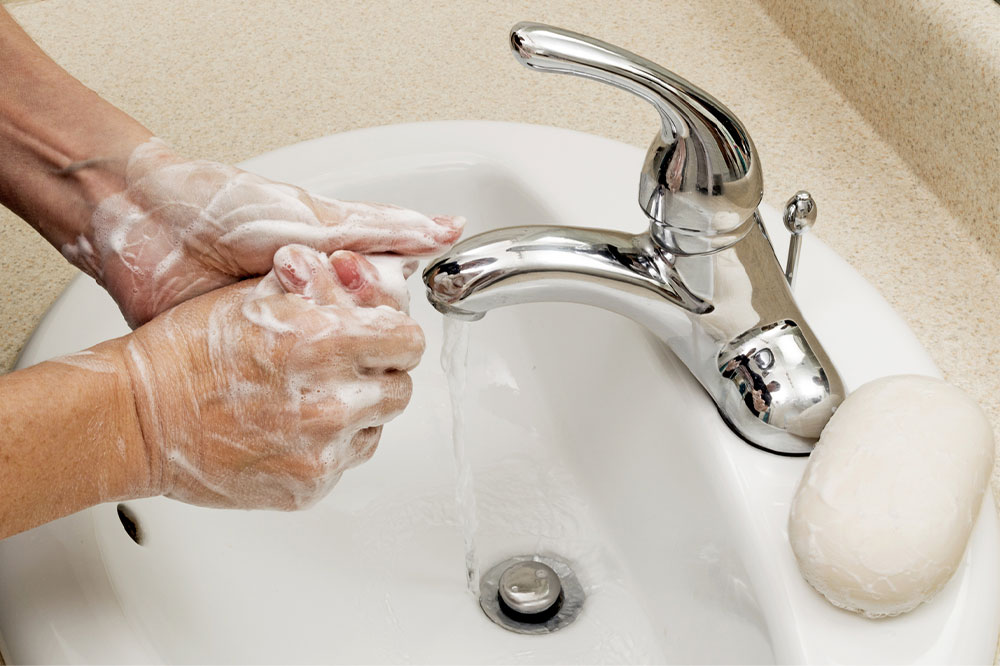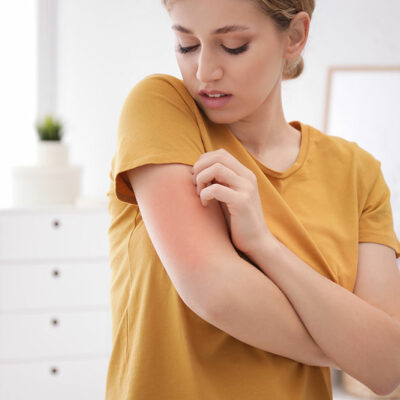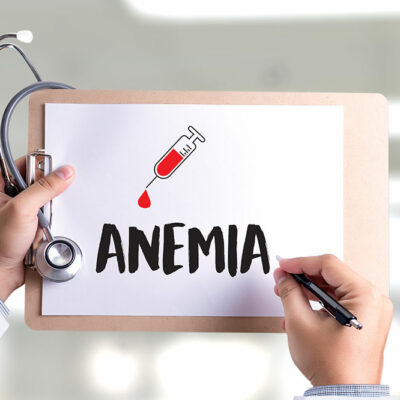
3 kinds of soaps that can cause eczema flare-ups
Atopic dermatitis, more commonly known as eczema, is a chronic skin disorder. While dermatitis develops at a young age, even adults can be affected by the condition. The condition makes the skin dry and triggers inflammation and swelling. Pain, irritation, blisters, bumps, and persistent itching are some symptoms of this skin disease. Certain products or ingredients can also worsen the symptoms. So, here are different types of soaps that can cause eczema flare-ups:
Soaps with synthetic preservatives
Most branded cosmetics contain a variety of artificial ingredients. Methylisothiazolinone (MIT) and Methylchloroisothiazolinone (CMIT) are two commonly used chemical preservatives added to soaps to extend their shelf life. These preservatives prevent bacteria from growing on the soap and the formulation from becoming rancid with repeated use. Everyday shampoos, conditioners, body wash, lotions, shaving cream, hairspray, and even makeup removers contain these preservatives. These additives affect the skin’s pH balance resulting in dermal irritation. When these soaps come in contact with sensitive skin, they can trigger eczema symptoms. In most cases, cosmetic allergens have been identified as the primary reason for flare-ups.
Soaps with Cocamidopropyl betaine
Cocamidopropyl betaine ( CAPB) is a natural fatty extract derived from coconuts. It is synthesized by mixing raw coconut oil with dimethylaminopropylamine, making it a surfactant that removes dirt and creates a thicker, foamy formula required for a good lather. This compound has gained popularity in recent years and is widely used by cosmetic brands in place of sulfates. Most daily-use soaps and soap products contain CAPB. However, the thickening agent presents a risk of eczema flare-ups, as contact with sensitive skin causes itching, irritation, redness, and skin rashes. It can even cause severe blisters and open sores to break out on the skin within just a few days of use. CAPB is also an active ingredient in different types of facial cleansers. Its direct contact with the eyes can trigger pain, itching, redness, and swelling around the area.
Antibacterial soaps and handwashes
Dry skin is one of the primary symptoms of eczema, so one should avoid using ethanol-based soaps as they aggravate dryness. Soaps and common detergents contain compounds that rob the skin of its moisture. The skin also develops pus-filled blisters without moisture. Further, repeated exposure to antibacterial agents negatively affects sensitive skin. So, one should moisturize immediately after using washing the product off so that the skin doesn’t lose all its texture. People with eczema should avoid antibacterial soaps, wipes, or hand washes and use eczema-friendly organic soaps. One should also adopt appropriate washing, rinsing, and drying techniques recommended by their skin specialist. Simple changes can help one manage severe symptoms.
Eczema has no cure yet, but it is possible to manage its symptoms with effective topical treatments and lifestyle changes. If the symptoms persist and one experiences frequent flare-ups, they should immediately consult a skin specialist to understand treatment options. A combination of ointments, creams, and lotions can prevent skin from drying, forming blisters, and losing its texture. Further, lifestyle changes like healthier food choices, protecting the skin from harsh products, and avoiding irritants can help lower the risk of eczema flare-ups.


